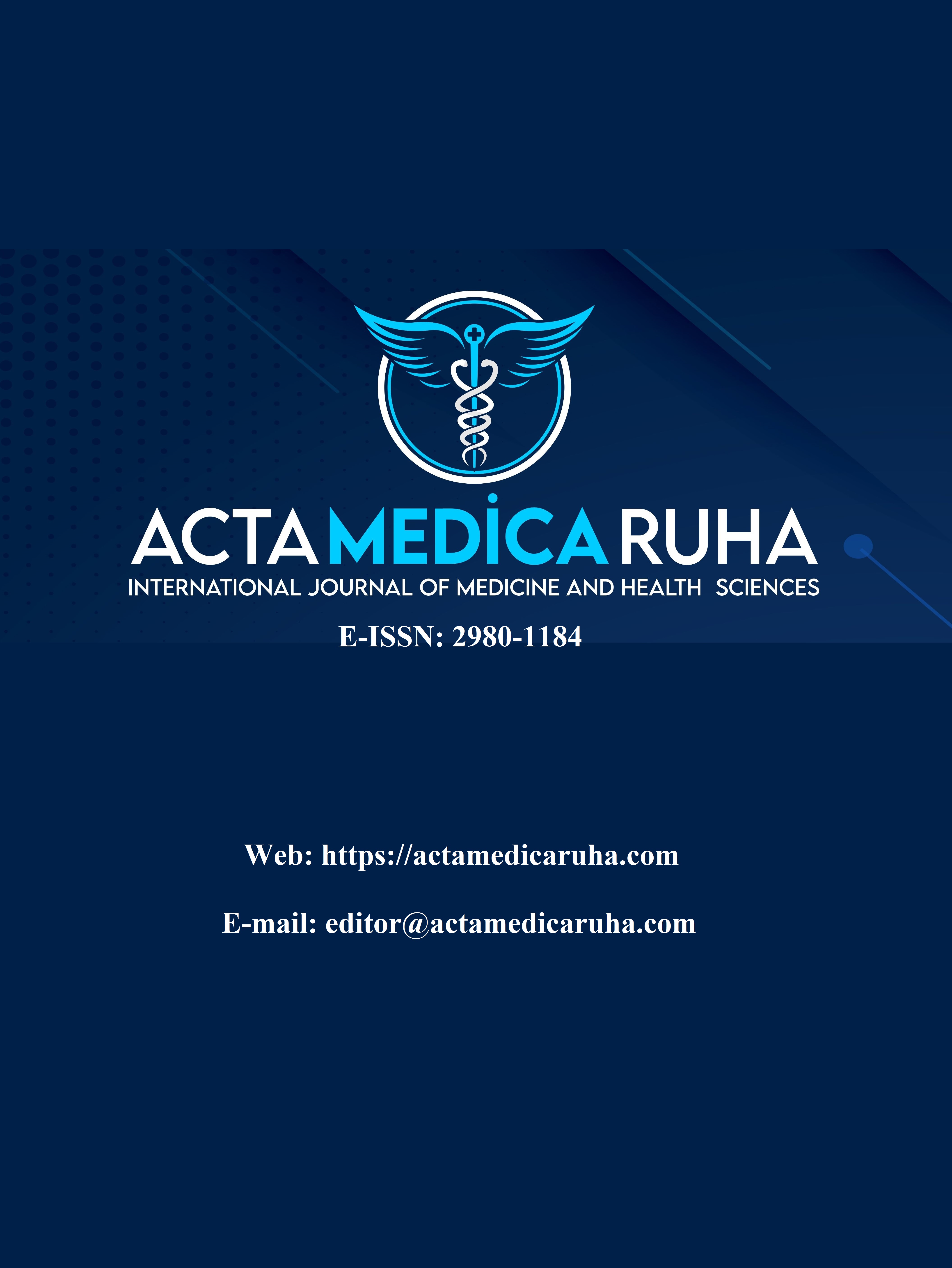Individual-Level Abortion Stigma and Affecting Factors in Women with Abortion Experience
Research Article
DOI:
https://doi.org/10.5281/zenodo.13640193Keywords:
Abortion, Abortion Stigma, Individual StigmaAbstract
Introduction: Women may decide to have an abortion for various reasons such as not wanting a child, maternal/fetal health problems, age, financial difficulties, family or partner pressure and lack of social support. Therefore, many women face psychological problems as a result of the individual-level abortion stigma they experience for sociodemographic and cultural reasons. Measuring individual-level abortion stigma is important in terms of preventing individual stigma and the health problems it may cause.
Objective: This study aims to determine the individual-level abortion stigma and the factors affecting this situation in women with abortion experience.
Method: The population of this cross-sectional study consisted of women who applied to the gynaecology and obstetrics outpatient clinic of a hospital. The sample consisted of 127 participants who met the inclusion criteria and agreed to participate in the study. Data were collected using Personal Information Form and Individual Level Abortion Stigma Scale.
Results: In the study, 77.2% of the participants were between the ages of 18-35, 89.0% had at least one living child, and 92.9% had 3 or less abortions. Among women, 95.3% of abortions were for medical reasons and 89.3% of these were due to fetal indication. The mean score of the Individual Level Stigma in Abortion Scale was 1.61±0.57. There was no significant relationship between socio-demographic and obstetric characteristics and scale score (p>0.05).
Conclusion: The individual-level abortion stigma was found to be at a moderate level in women with abortion experience. Individual-level abortion stigma was found to be independent of individual and environmental factors.
References
Kumar A, Hessini L, Mitchell EM. Conceptualising Abortion Stigma. Cult Health Sex. 2009;11(6):625-639. doi:10.1080/13691050902842741
World Health Organization (2021). Abortion. https://www.who.int/news-room/fact-sheets/detail/abortion (Accessed at 09.06.2024).
Turkey Demographic and Health Survey. chrome-extension://efaidnbmnnnibpcajpcglclefindmkaj/https://fs.hacettepe.edu.tr/hips/dosyalar/Ara%C5%9Ft%C4%B1rmalar%20- %20raporlar/2018%20TNSA/TDHS2018_mainReport_compressed.pdf (Accessed at 09.06.2024).
Budak MŞ, Toğrul C, Balsak D, et al. The evaluation of failed contraception methods and causes ın elective pregnancy termination. Journal of Gynecology - Obstetrics and Neonatology. 2015;12(3):106-9. chrome-extension://efaidnbmnnnibpcajpcglclefindmkaj/https://dergipark.org.tr/tr/download/article-file/933437 (Accessed at 09.06.2024).
Lapresa-Alcalde MV, Cubo AM, Alonso-Sardón M, Doyague-Sánchez MJ. Reproductive Health Practices in Spanish Women Who Underwent Voluntary Termination of Pregnancy. Diseases. 2023;11(1):37. doi:10.3390/diseases11010037
Hanschmidt F, Nagl M, Klingner J, Stepan H, Kersting A. Abortion After Diagnosis Of Fetal Anomaly: Psychometric Properties Of A German Version Of The İndividual Level Abortion Stigma Scale. PLoS One. 2018;13(6). doi:10.1371/journal.pone.0197986
Li X, Peng H, Zeng L, et al. Stigma And İts İnfluencing Factors Among Women With Termination Of Pregnancy For Fetal Anomaly: A Cross-Sectional Study. Midwifery. 2023;116:103553. doi:10.1016/j.midw.2022.103553
Ekholuenetale M, Ekholuenetale CE, Barrow A. Prognostic Factors Of Time To First Abortion After Sexual Debut Among Fragile State Congolese Women: A Survival Analysis. BMC Public Health. 2021;21(1):525. doi:10.1186/s12889-021-10599-x
Ples L, Popescu I, Margarit I, et al. Factors Affecting The Decision To Undergo Abortion İn Romania: Experiences At Our Clinic. J Eval Clin Pract. 2020;26(2):484-488. doi:10.1111/jep.13250
Cockrill K, Upadhyay UD, Turan J, Greene Foster D. The Stigma Of Having An Abortion: Development Of A Scale And Characteristics Of Women Experiencing Abortion Stigma. Perspect Sex Reprod Health. 2013;45(2):79-88. doi:10.1363/4507913
Cockrill, K. and Nack, A. “I’m not that type of person”: Managing The Stigma Of Having An Abortion. Deviant Behavior 2013; 34(12),973–990. doi: 10.1080/01639625.2013.800423.
Zenebe, M. and Haukanes, H. When Abortion İs Not Within Reach: Ethiopian University Students Struggling With Unintended Pregnancies. Int J Equity Health. 2019;18(1), 23. https://doi.org/10.1186/s12939-019-0925-2
Cetinkaya, A., Ozmen, D., Uyar, F., Tayhan, A. Reliability And Validity Of The Turkish Version Of The Individual-Level Abortion Stigma Scale: A Methodological Study. BMJ Open. 2013; 9(4). https://doi.org/10.1136/bmjopen-2018-024686
Belfrage M, Ortíz Ramírez O, Sorhaindo A. Story Circles and abortion stigma in Mexico: a mixed-methods evaluation of a new intervention for reducing individual level abortion stigma. Cult Health Sex. 2020;22(1):96-111. doi:10.1080/13691058.2019.1577493
Shellenberg KM, Moore AM, Bankole A, et al. Social Stigma And Disclosure About İnduced Abortion: Results From An Exploratory Study. Glob Public Health. 2011;6,111-125. doi:10.1080/17441692.2011.594072
Wado YD, Dijkerman S, Fetters T, Wondimu D, Desta D. The Effects Of A Community-Based İntervention On Women's Knowledge And Attitudes About Safe Abortion İn İntervention And Comparison Towns İn Oromia, Ethiopia. Women Health. 2018;58(9):967-982. doi:10.1080/03630242.2017.1377799
Biggs MA, Brown K, Foster DG. Perceived Abortion Stigma And Psychological Well-Being Over Five Years After Receiving Or Being Denied An Abortion. PLoS One. 2020;15(1):e0226417. doi:10.1371/journal.pone.0226417
Oginni A, Ahmadu SK, Okwesa N, Adejo I, Shekerau H. Correlates Of Individual-Level Abortion Stigma Among Women Seeking Elective Abortion in Nigeria. Int J Womens Health. 2018;10:361-366. Published 2018 Jul 12. doi:10.2147/IJWH.S143388
Steinberg JR, Tschann JM, Furgerson D, Harper CC. Psychosocial Factors And Pre-Abortion Psychological Health: The Significance Of Stigma. Soc Sci Med. 2016;150:67-75. doi:10.1016/j.socscimed.2015.12.007
De Zordo S. From Women’s “Irresponsibility” To Foetal “Patienthood”: Obstetricians-Gynaecologists’ Perspectives On Abortion And İts Stigmatisation in Italy And Cataluña. Glob Public Health. 2017; 1–13. pmid:28278744.
Norris A, Bessett D, Steinberg JR, Kavanaugh ML, De Zordo S, Becker D. Abortion Stigma: A Reconceptualization Of Constituents, Causes, And Consequences. Womens Health Issues. 2011;21(3 Suppl):S49-S54. doi:10.1016/j.whi.2011.02.010
Demir R, Kaya Odabaş R. Investigation into the Relationship Between Women's Thoughts, Stigmatizing Attitudes, Beliefs, and Behaviors on Voluntary Abortion and Spiritual Well-Being in Turkiye. J Transcult Nurs. 2024;35(3):207-215. doi:10.1177/10436596241229483
Yanikkerem E, Üstgörül S, Karakus A, Baydar O, Esmeray N, Ertem G. Turkish Nursing Students' Attitudes Towards Voluntary Induced Abortion. J Pak Med Assoc. 2018;68(3):410-416.
Makleff S, Labandera A, Chiribao F, et al. Experience Obtaining Legal Abortion In Uruguay: Knowledge, Attitudes, And Stigma Among Abortion Clients. BMC Womens Health. 2019;19(1):155. Published 2019 Dec 9. doi:10.1186/s12905-019-0855-6
Downloads
Published
How to Cite
Issue
Section
License
Copyright (c) 2024 Acta Medica Ruha

This work is licensed under a Creative Commons Attribution 4.0 International License.









